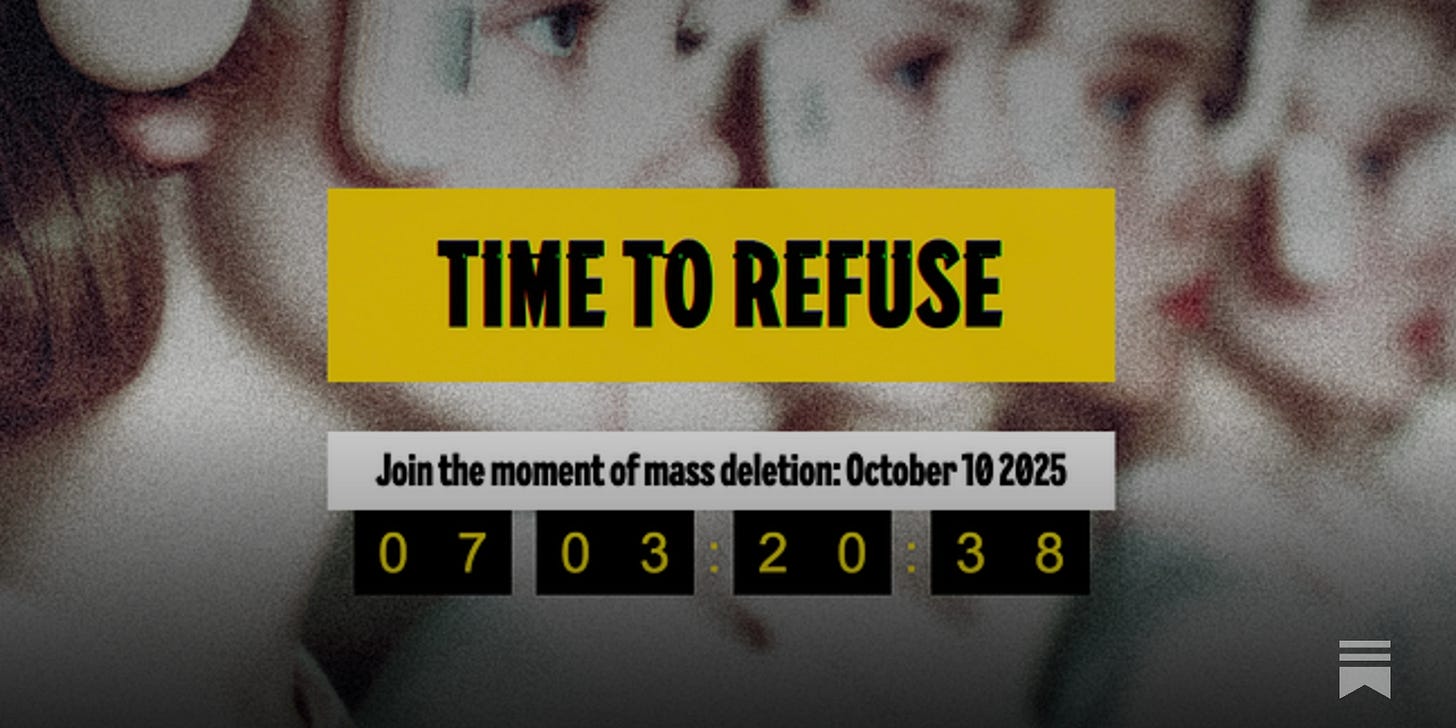We’re Not Struggling with Overcommitment to Church
How to create commitment to the better story

This week on The Shock Absorber Podcast, Joel McMaster and I explore what it means to live as elect exiles, not in opposition to culture, but with a deeper awareness that Christians are called to live by a different story.
Refuse The Slop
We begin by discussing the Time To Refuse “mass deletion” event in New York City, where people were collectively deleting social media apps to reclaim their attention and humanity. The conversation draws from Freya India’s recent writing, We Are The Slop, which explores how our obsession with online performance has turned us into entertainment for others.
Three threads of this story were fascinating to me.
It is an intentional counter-culture to the normal life of Gen Z and Gen Alpha
It is a collective action response to a collective action problem
The alternative to screen addiction is told in a positive light
Return of the Exile
For those who have been following along over the last few weeks, it will come as no surprise that Joel and I continue the discussion with reference to our current sermon series on 1 Peter and Peter’s definition of his Christian audience as elect exiles. The Christian story, like the Time to Refuse campaign, is a positive, generative, counter-culture to the majority world. It does not combat culture, but neither does it retreat from culture. Rather, it offers a more beautiful and redemptive narrative that invites others to see a different way of being human.
As parents and church leaders, we then ask: how can we raise children to live in this tension — fully engaged in the world, yet grounded in the alternate story of Christ? Drawing on the history of family and intergenerational ministry, we discuss the importance of community, shared practices, and “positive peer pressure” that helps children grow in faith and confidence.
Which leads us naturally to the topic of schooling. How do Christian parents navigate education choices — public, Christian, independent, or homeschool — in a culture that prizes individual success? I argue that there’s no single right answer, as each option has benefits to appreciate and deficits to actively counteract. Regardless of personal choice, the encouragement is to form confident, secure young people who know their identity in Christ and can live faithfully as a minority in society.
Commitment Is The Key
We wrap up this week’s episode by exploring what it means to commit deeply to the life of the church. Commitment to Jesus, and then to his people, shapes us and shapes the next generation. Overcommitment to church is not a problem we’re struggling with. Instead, we ought to be calling Christians to live out the better story of the gospel, which is marked by deep community, costly love, and faithful presence.
And as always, listen along to The Shock Absorber podcast on your regular podcasting platform, or click through on one of the links below.

